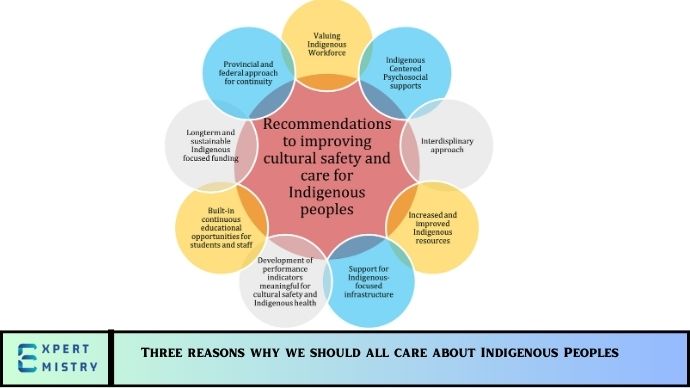Indigenous peoples, the world’s original inhabitants, are often marginalized, yet their contributions to global culture, environmental stewardship, and social justice are invaluable. While their numbers may represent only a small fraction of the global population, their influence is profound, and their rights and survival are vital to the future of our planet and societies. As we enter a new era of environmental challenges and social change, it has become increasingly important for all of us to care about and actively support Indigenous peoples and their causes.
In this blog post, we’ll explore three critical reasons why we should all care about Indigenous peoples—why their protection, rights, and cultures must matter to us all, regardless of our background or nationality.
1. Cultural Heritage and Diversity
Indigenous peoples are the custodians of cultural diversity and traditional knowledge that have existed for thousands of years. Their languages, art, rituals, and customs reflect a deep understanding of the world, passed down through generations. When we care about Indigenous peoples, we are also caring about the preservation of the richness and diversity of human culture.
The Importance of Cultural Diversity
Humanity’s cultural diversity is under threat, with many Indigenous languages and traditions facing extinction. According to the United Nations Educational, Scientific and Cultural Organization (UNESCO), nearly 40% of the world’s languages are at risk of disappearing. Indigenous languages often contain unique ways of understanding the world, from ecological knowledge to storytelling techniques and ways of organizing social and political life.
By supporting Indigenous peoples and their rights, we help protect this irreplaceable cultural diversity. Indigenous traditions provide insight into sustainable living, alternative ways of viewing the world, and a broader understanding of human potential.
Indigenous Languages and Knowledge
Many Indigenous peoples maintain a deep connection to their ancestral lands, and their languages are an essential part of that connection. Preserving these languages can help safeguard critical environmental knowledge. For example, the knowledge systems of Indigenous peoples have contributed to agricultural practices, medicinal plants, and biodiversity conservation in many regions.
When we protect Indigenous languages and cultures, we are also safeguarding invaluable knowledge that could hold solutions for contemporary global challenges, such as climate change and biodiversity loss.
2. Guardians of the Environment
Indigenous peoples have a longstanding connection with the land and ecosystems they inhabit. They often live in some of the most biodiverse regions on the planet, from the Amazon rainforest to the Arctic tundra. Yet, despite their critical role in maintaining the balance of ecosystems, Indigenous communities are disproportionately affected by environmental degradation, deforestation, and climate change.
Indigenous Environmental Stewardship
Indigenous peoples have a unique relationship with their land, which is based on respect, reciprocity, and sustainability. Their traditional knowledge of ecosystems is unparalleled, and they practice sustainable resource management that has been passed down for generations. Many Indigenous communities have maintained sustainable agricultural practices, forest management techniques, and methods for managing natural resources in ways that are harmonious with nature.
For example, Indigenous knowledge about fire management in Australia has helped prevent wildfires. In the Amazon, Indigenous communities are working to protect the rainforest, which is crucial to regulating global climate. Indigenous stewardship is an essential solution to preserving biodiversity and mitigating the effects of climate change.
Deforestation and Climate Change
Unfortunately, Indigenous peoples are often at the frontline of climate change and environmental destruction. Indigenous lands are being threatened by deforestation, mining, and oil exploration, and these activities are contributing to global climate change. When Indigenous communities lose their land or when their resources are extracted without their consent, it directly affects the environment and accelerates biodiversity loss.
For example, the destruction of the Amazon rainforest, home to millions of Indigenous people, not only threatens their livelihoods but also contributes to global warming, as rainforests play a critical role in carbon absorption.
By supporting Indigenous land rights, we can help ensure that land protection and environmental sustainability remain at the forefront of the global conversation.
3. Social Justice and Human Rights
The rights of Indigenous peoples have historically been ignored or violated, and many communities continue to face discrimination, violence, and exploitation. Caring about Indigenous peoples is ultimately a matter of social justice and human rights.
The Struggle for Land and Autonomy
Throughout history, Indigenous communities have been forcibly displaced from their ancestral lands. Many Indigenous groups have faced colonialism, forced assimilation, and economic marginalization. Today, their right to self-determination and land autonomy is still not recognized in many countries, leading to ongoing struggles for justice.
Indigenous peoples often fight for their rights to own and control their ancestral territories, as these lands are central to their identity, livelihoods, and cultural survival. In many cases, the land is not just property—it is a sacred connection to their ancestors and the foundation of their spiritual and cultural practices.
Violence, Discrimination, and Inequality
Indigenous peoples face high rates of violence, discrimination, and poverty. In many parts of the world, Indigenous women and children are disproportionately affected by violence, including human trafficking, gender-based violence, and land disputes. Health outcomes are also disproportionately poor, with lower life expectancies and higher rates of malnutrition, chronic illness, and mental health challenges.
By caring about Indigenous peoples, we recognize their right to live with dignity, equality, and respect. Supporting their social justice movements and advocating for their rights ensures that we are working toward a more just and equitable world.
May you also like it:
Internet Exchange Points in Argentina: Network Infrastructure Improves the Balance of Trade
Managing Your Digital Footprints: Essential Tips for Online Privacy
Top 20 Most Popular Types of Blogs in 2024
Conclusion
Caring about Indigenous peoples is not just about protecting specific communities—it’s about preserving our planet’s biodiversity, safeguarding ancient knowledge, and advancing social justice. Their wisdom, culture, and traditions are vital to the survival of our planet and the well-being of all its inhabitants. By supporting Indigenous communities, we ensure that future generations can benefit from the same cultural richness, environmental stewardship, and human rights that Indigenous peoples have protected for centuries.
As we move toward a more sustainable and equitable future, it’s crucial that we all take a stand for the rights, cultures, and ecosystems of Indigenous peoples. They are not just fighting for themselves—they are fighting for the future of humanity and the health of our planet.
FAQ
Why is it important to care about Indigenous peoples?
Caring about Indigenous peoples helps preserve their cultures, protect the environment, and ensure social justice. Their knowledge and rights are crucial for global sustainability.
What role do Indigenous peoples play in environmental conservation?
Indigenous peoples are stewards of the land, practicing sustainable resource management and protecting biodiversity. Their knowledge is critical for preserving ecosystems.
How are Indigenous peoples impacted by climate change?
Indigenous communities are often on the frontline of climate change, as their lands are disproportionately affected by deforestation, resource extraction, and extreme weather events.
What challenges do Indigenous peoples face today?
Indigenous peoples face challenges such as land dispossession, discrimination, violence, poverty, and a lack of recognition for their rights and autonomy.
How can I support Indigenous communities?
You can support Indigenous communities by advocating for their rights, educating yourself about their struggles, purchasing from Indigenous businesses, and supporting conservation efforts.

